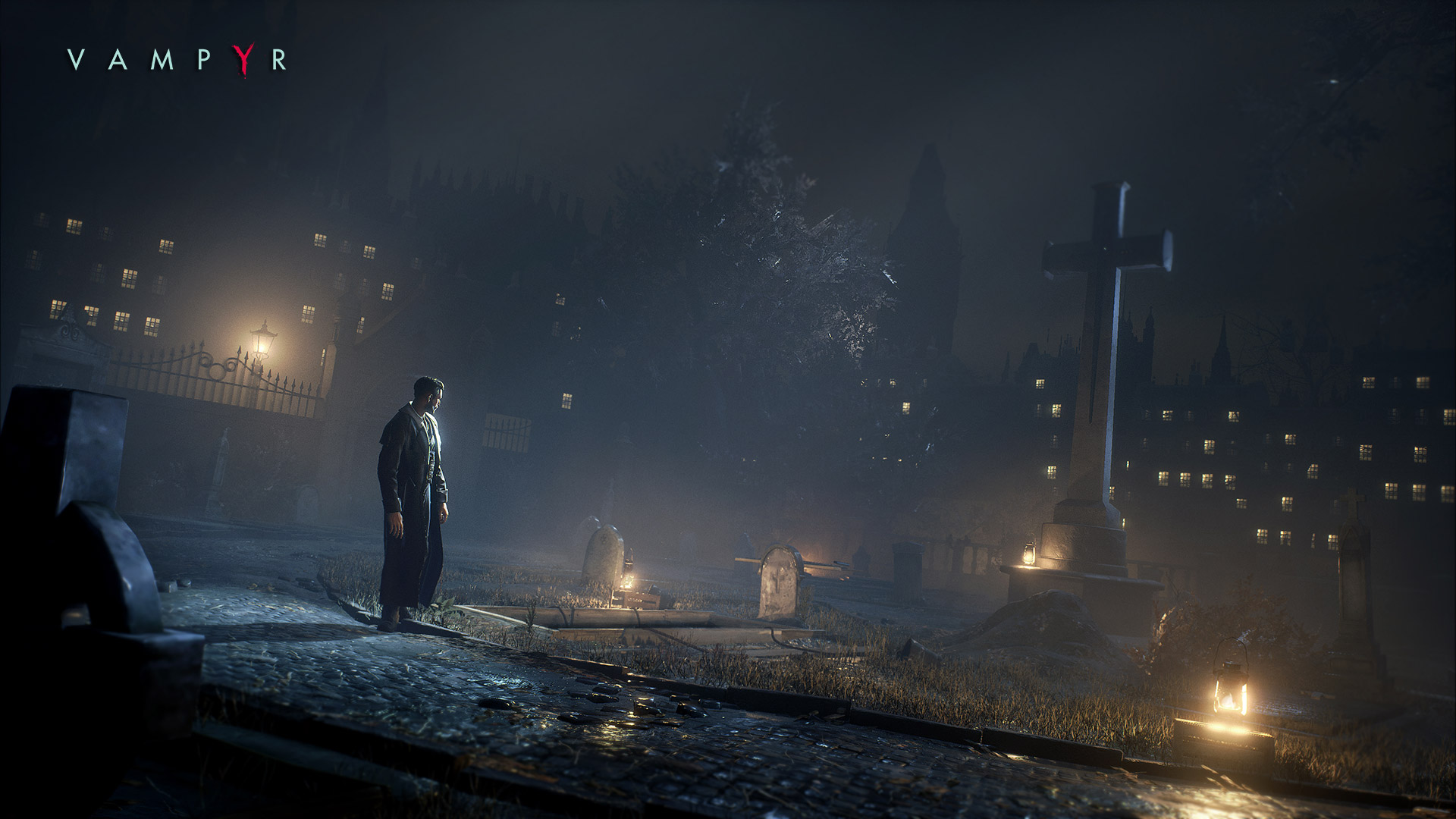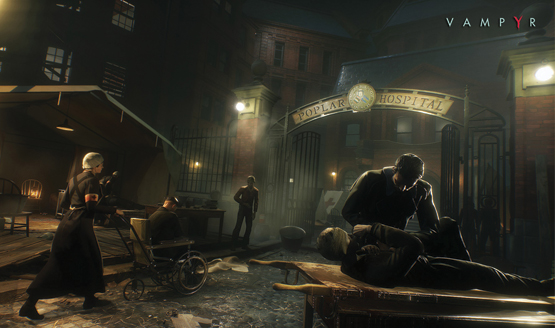If you loved Life is Strange and found yourself mystified with developer Dontnod’s choice to develop a 1920’s-era action-RPG starring a vampire, you might want to stay on this page. We sat down with two of the lead creators of the project, Stéphane Beauverger and Grégory Szucs, and learned that Vampyr may contain even more torturous moral dilemmas and ambiguous choices than their acclaimed five-part series. How exactly does this work in the context of an action game? Read on to find out.
PlayStation LifeStyle: So what would you say Vampyr is at its core?
Stéphane Beauverger: I would say Vampyr is an action-RPG about duality. You used to be a human, you used to be a doctor, you used to believe in science… Now, you’re a vampire, you’re forced to kill people instead of saving them — there is definitely something supernatural in your own flesh.
Grégory Szucs: So in (our last game), Life is Strange, you could rewind time and undo your choices. Here, you can take your time to choose, but once it’s done it’s forever.
Stéphane: Yeah, there is no going back to previous states. Once you have killed one of the citizens, you have to deal with the consequences — just as in real life.
PSLS: One of our favorite things about Life Is Strange is that it dealt with very tricky themes, the kind that don’t often get addressed in video games. Can we expect similar things from Vampyr?
Stéphane: Yeah, yeah. Of course, this will be much darker… We are going back to the darker roots of humanity. Life is Strange was about being a teenager and accepting your (approaching) adulthood. In Vampyr, we’ll be looking at your inner self: Who are you really? The main character is going back to his hometown, so some of his targets will be people he knew, members of his family perhaps. It’s very interesting to create that kind of feeling for the player.
Grégory: Yeah, there are no black-and-white situations for the player: only gray and morally ambiguous, and it will be up to the player to rationalize (their decisions).
Stéphane: Each player will decide with his own attitude toward life about what (makes) someone good or someone bad. You will not be forced to kill, but everything in the game will incite you to do so, because you gain many more experience points when you kill someone.
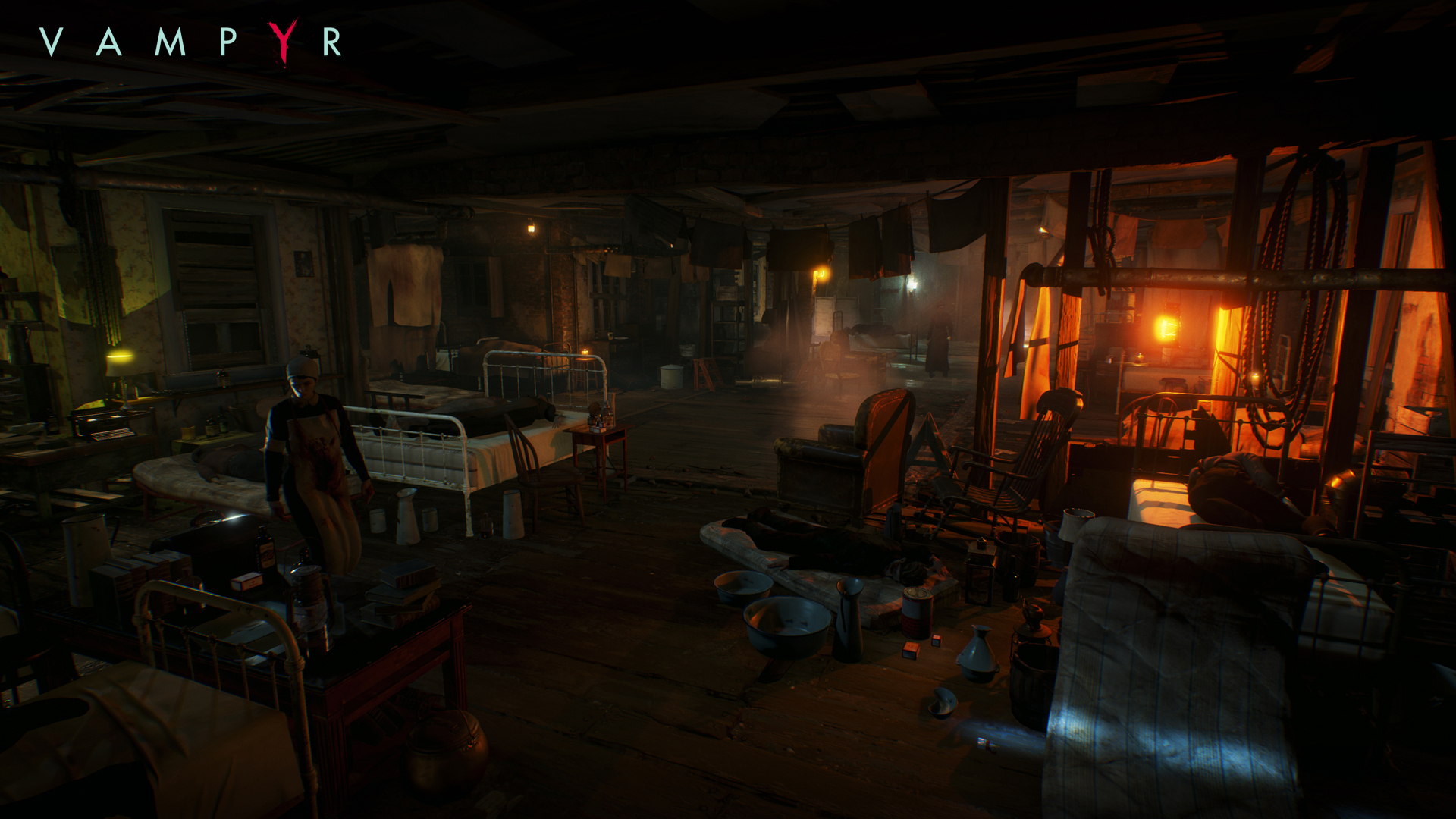
PSLS: How will these decisions affect replayability? Do you see players going back to take a different path?
Stéphane: Yes, of course. You can decide to play the good vampire once, or the bad vampire the next time, or you could try to kill no one at all — (laughs) neutral!
Grégory: And you can’t just change your mind at the end.
Stéphane: Yes, yes. You can’t play the evil vampire throughout the whole game and then at the end “save the princess” — no, because you’re an asshole (laughs). You will be forced to accept the consequences because of what you did throughout the game.
PSLS: So as you’re making these choices, do you see the paths branching further and further apart?
Stéphane: Well, not exactly that. When you’re a story writer, when you start that kind of branching, you eventually realize that it’s a complete mess. So instead, throughout the game, there are “major killing choices.” For example, you could realize that someone is really dangerous or corrupt — a shady character who steals, who kills, perhaps, but the money from these activities is used to fund the poor. So if you decide to kill him, all the poor in the area will suffer from that, because he was the only one crazy enough to buy some (medicine) for them.
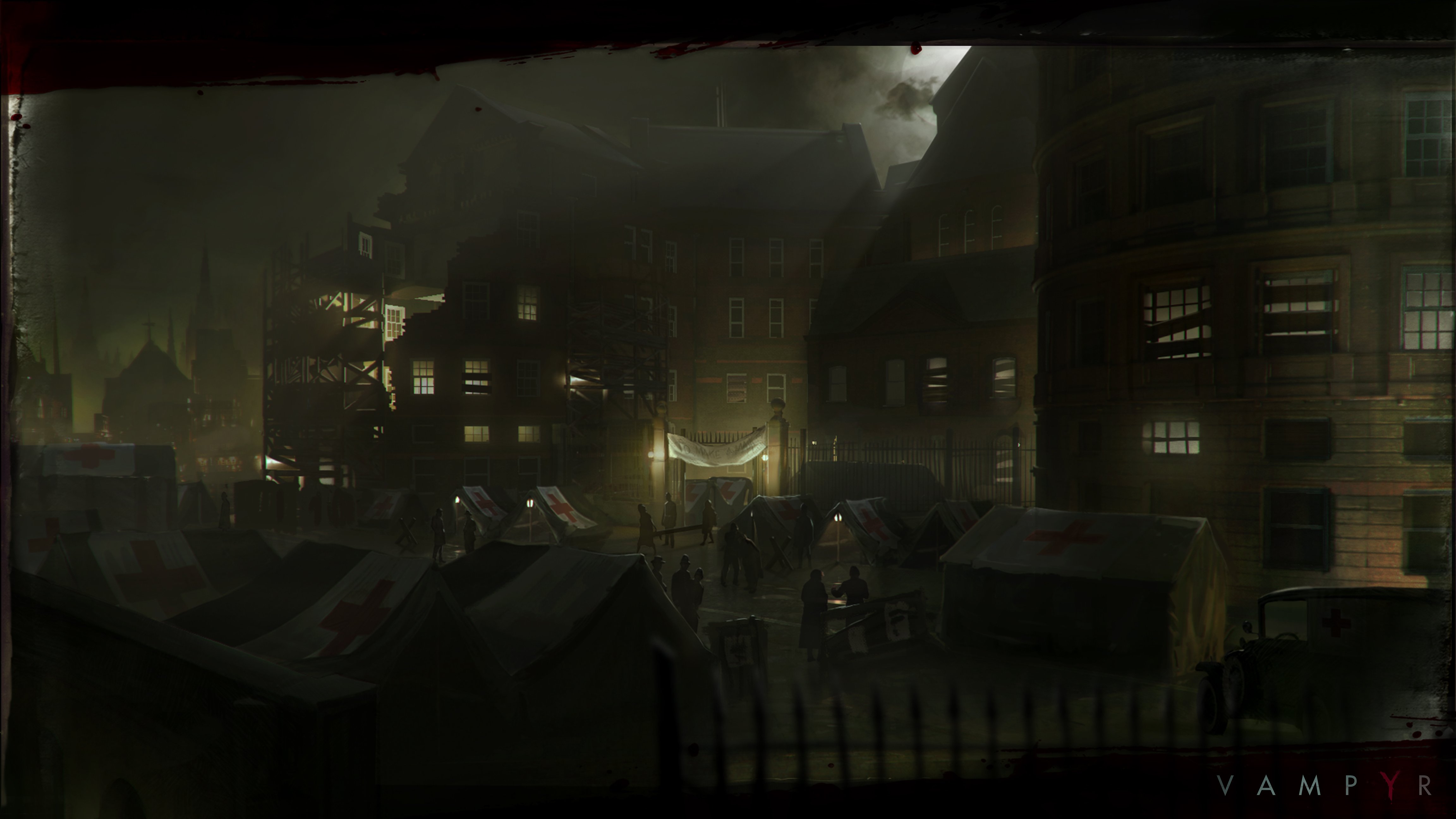
PSLS: So as opposed to the decision-making in Life Is Strange, the main gameplay here is obviously the action-RPG combat. How does this work? Is there an open world, or is the narrative set on a more linear path?
Grégory: It’s a semi-open world. You are free to roam the streets, with some narrative restrictions.
Stéphane: But throughout the game, you always hide what you really are. You always talk to people as a doctor, so they are very excited to let you enter your house! (laughs) At the time the game is set, at the end of the first World War, to be a doctor is just a free pass. You have a lot of influence, except for a few NPCs who are aware of what you really are.
PSLS: In a lot of ways, Life Is Strange and Vampyr couldn’t be more different. What’s it like shifting gears from the bright environments and comparably subtle narrative of the earlier game?
Grégory: On the surface, yes, it’s different — but as we said, we’re about asking tough questions of the player.
Stéphane: Yeah. All the Dontnod projects, from Remember Me to Life Is Strange to Vampyr are about asking the player: how do you feel (about) your actions?
PSLS: Obviously, prior to E3, the U.S. saw the worst mass shooting in its history during the tragedy in Orlando. Witnessing the horror of real violence and then seeing the way many video games are advertised — with the rampant glamorization of fictional violence — can be jarring. Do you think Vampyr will force players to think about the violence they’re committing?
Grégory: Yeah, violence is not casually thrown out here. The whole point is, when you kill someone, can you live with it?
Stéphane: In too many games, you just kill because the rules of the game tell you to kill. There is never an “Are you sure this is a good thing to do?” We want the player to realize that there is no nameless citizen in the game. Every citizen has a story, friends, a family, activities, a career, and you will always take a life knowing all these facts. As a vampire, you have to randomly pick someone up, take them into the shadows, mesmerize him, bite him and kill him.
PSLS: So you’ve really got to go through a process, confirming your decision over and over the whole way.
Stéphane: Yes, and as you do that, you’ve got the whole story of the citizen, who he was entirely — so you’ve got to realize who you’ve just killed. So then you’ll say, “Oh, s***. This guy has friends, he has a wife, he has a son…”
Grégory: You’ve really got to take the time to get to know your victims. You have time to contemplate what you’re about to do.
Stéphane: We want the player to realize the rule we have on the project: you are not the hero, you are the monster. The heroes are the guys who are trying to take you down. (laughs)
We’d like to thank Stéphane and Grégory for allowing us a bit of their time during the most chaotic week in video games. If you’re interested in Vampyr, you can check out its official website. The game is set for a 2017 release date.
Vampyr Screenshots 5.24.16
-
Vampyr Screenshot (1)
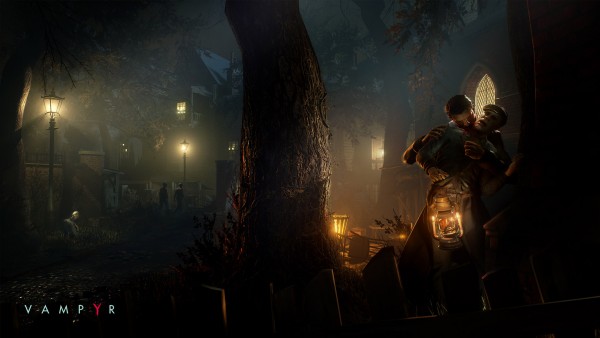
-
Vampyr Screenshot (2)
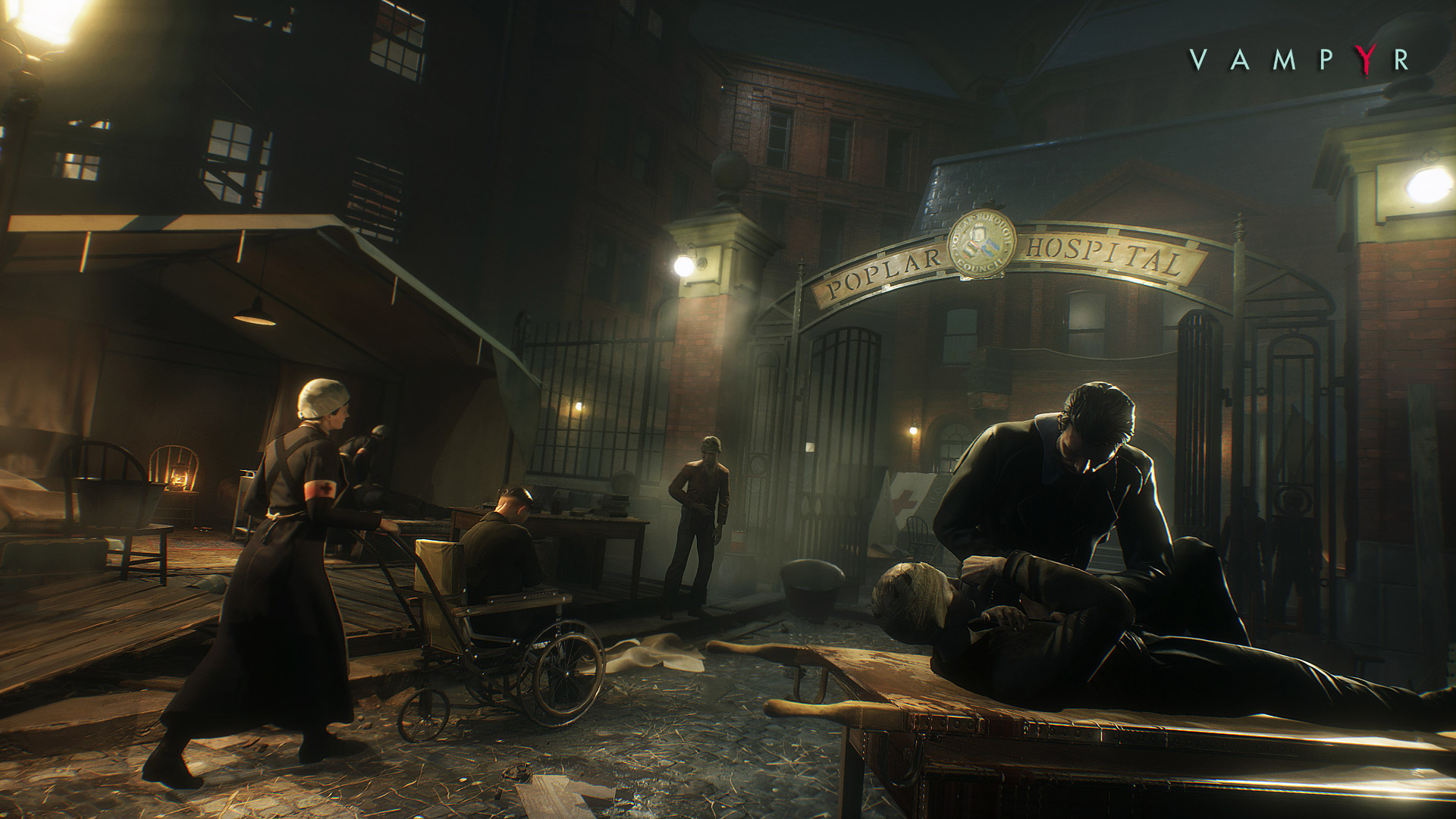
-
Vampyr Screenshot (3)
